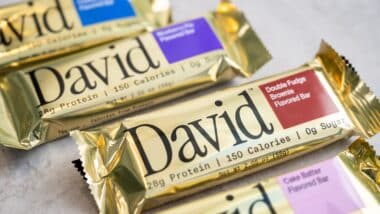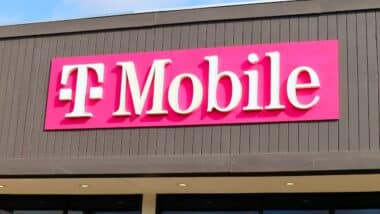
Consumers who have been harassed by retailers through targeted advertising, mass text messages, or mobile coupon ads may be protected under the Telephone Consumer Protection Act.
If you have registered your number with the National Do Not Call Registry but have still received text message coupons from clothing retailers or restaurants, you may be eligible to pursue compensation for these violations.
What are Mobile Coupon Ads?
Some retailers, including restaurants and clothing retailers, have been accused by consumers of sending harassing or irritating mass text messages as part of an advertising campaign. These mass messages often contain a coupon code or discount, in order to persuade the consumer to shop or eat at the retailer.
However, these messages may violate consumer protection laws by not being clear that consumers are opting in to receive future advertisements. According to consumer complaints, these mobile coupon ads often prompt the consumer to text a phrase or string of numbers to the company’s shortcode or phone number in order to receive a discount or coupon.
However, these consumers are allegedly not informed that by texting the code, they are opting in to receive future advertisements from the company. In some cases, consumers claim that they received over a dozen advertising texts a day after responding to a mobile coupon ad.
According to a CNN Business article about a Papa John’s spam lawsuit, the Federal Communications Commission recommends consumers who do not wish to receive marketing text messages or phone calls to sign up with the National Do Not Call Registry.
Does the Do Not Call Registry Protect Me from Mobile Coupon Ads?
According to the Federal Communications Commission (FCC), these mobile coupon ads may be in violation of the Telephone Consumer Protection Act if recipients of these ads have registered their phone numbers with the National Do Not Call list.
Consumers who register their numbers with this list are afforded legal protections and have recourse if their rights are violated. While retailers and other companies are allowed to send messages to consumers with whom they have a business relationship, or if the consumer has consented to receive messages, many of these mass advertising campaigns affect consumers who have not consented to be contacted.
What is the Do Not Call Registry?
The Do Not Call Registry is a national list managed by the FCC for the purpose of protecting consumers from unwanted or harassing phone calls, texts, and faxes from solicitors. Under the terms of the TCPA, solicitors are prohibited from calling numbers registered with the Do Not Call list.
You can register your telephone number online; once your number has been on the Registry for 31 days, marketers and commercial solicitors are prohibited from contacting you without your express consent. There is no fee for placing your telephone number on the Do Not Call Registry. You can also report violations through the website. (Note: calls and solicitations from charities, politicals groups, debt collectors and surveys are exempt and may still contact you legally, regardless of whether or not your number is registered.)
What is the Telephone Consumer Protection Act?
The TCPA was established in 1991 to protect consumers from being contacted by retailers and other companies without their permission. This law is an amendment of the Communications Act of 1934, which regulates “…interstate and foreign commerce in communication by wire and radio.”
The TCPA prohibits companies from contacting consumers without their explicit consent, calling before 8 a.m. or after 9 p.m., calling consumers on the Do Not Call list, or using an automatic dialing system to contact consumers who have not consented.
The TCPA has been updated and amended many times over the past 30 years as communications technologies have changed and expanded. Today, the law applies to faxes and text messages as well as “ringless” voice mails (messages that bypass the consumer’s phone and go directly to voice mail).
One unusual aspect of the TCPA is that it is a federal law – but lawsuits over violations are usually filed in state court: “A person or entity may, if otherwise permitted by the laws or rules of court of a State, bring in an appropriate court of that State.” A number of court cases have upheld this part of the law, most notably Worsham v. Nationwide Insurance Co. (2001), in which the court ruled that the TCPA grants state courts exclusive jurisdiction over a lawsuit brought by a private party under federal statutes.
Under the TCPA, consumers who have been subject to violations may be eligible to sue for between $500 and $1,500 for each infraction.
If you have received mobile coupon ads from a clothing retailer or restaurant despite filing your number with the Do Not Call Registry, you may be able to hire a qualified attorney and file a class action lawsuit to pursue compensation for TCPA violations.
Join a Free Text Message Coupon Class Action Lawsuit Investigation
If you have received coupons or sales advertisements in a text message from a restaurant or clothing retailer and your phone number is registered with the National Do Not Call registry, you may be entitled to compensation.
This article is not legal advice. It is presented
for informational purposes only.
ATTORNEY ADVERTISING
Top Class Actions is a Proud Member of the American Bar Association
LEGAL INFORMATION IS NOT LEGAL ADVICE
Top Class Actions Legal Statement
©2008 – 2026 Top Class Actions® LLC
Various Trademarks held by their respective owners
This website is not intended for viewing or usage by European Union citizens.















8 thoughts onDoes the Do Not Call Registry Protect Me from Mobile Coupon Ads?
Add me thank
Add me
Please add me
Add me please
Add me
Please add me
Please add me
Please add me